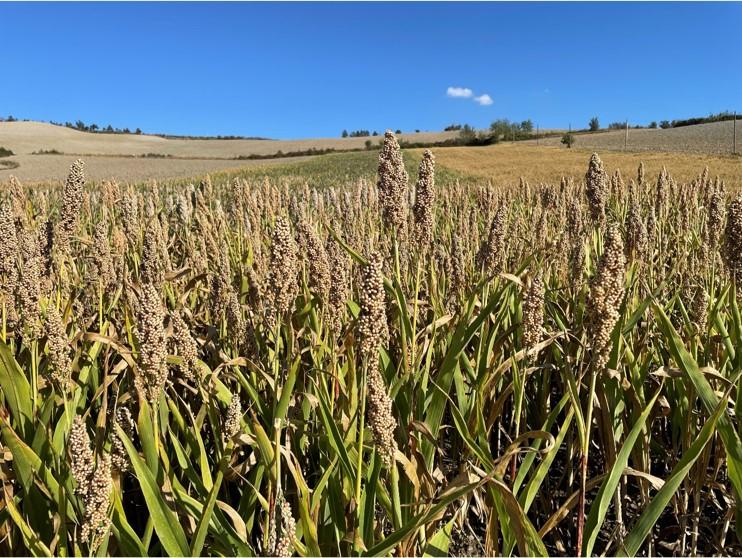
Extreme weather events like droughts and storms harm crops and threaten food supply. In the Po Valley in northern Italy, maize is the most widely cultivated cereal crop, but it needs a lot of water to grow. As water is a scarce resource, a change in species and agricultural techniques is required.
The team behind GREAT LIFE worked with three demonstration farms in the Po Valley to help them adapt to climate change.
The farmers reduced their water consumption by switching to millet and sorghum, which are more resilient to extreme weather and need less water than maize to grow.
Project partners conducted experimental field trials with the farmers, showing them how to grow these grains optimally and increase their resilience.
Also, both cereals are gluten-free and a healthy option for consumers. As the market for gluten-free products is expanding in the EU, this presents an opportunity for the farmers to increase their incomes.
First results from the project’s life cycle assessment (LCA) show that the millet and sorghum had a lower global warming potential than maize grown conventionally - one hectare of sorghum or millet grown on the farms produced about 280 kg of CO2eq. This is much lower than the 2 300 kg of CO2eq/ha emitted, taking a traditional approach.
Also, the resilient agricultural practices kept the soil area covered throughout the crop cycle, reducing soil erosion and preserving soil fertility. And the organic matter in the fields showed higher stability over three years with no significant changes from the beginning to the end of the field trials.
The team set up a GREAT Community of conscious consumers after an in-depth stakeholder mapping of key players in the food supply chain. This Community created awareness of the impact food choices can have on the environment, health and the economy. It included a network of food professionals like chefs, bakers and restauranteurs who experimented with the grains.
The team even produced shortbread biscuits from the three farms. Made from millet and sorghum, the prototype product was initially assessed within the GREAT Community and the municipality of Cento’s canteens before going on sale.
An online communications campaign targeted consumers and public authorities about the benefits of more responsible food consumption. The team also organized several events, workshops and webinars to raise awareness.
The project’s approach can be used by other European Mediterranean countries with semi-arid or arid climates. But it also applies to countries with continental climates, as shown by its replication in Czechia in 2021.
GREAT LIFE supports the 2021 EU Adaptation Strategy. It also contributes to the EU’s Biodiversity Strategy for 2030, which, among many other actions, encourages organic farming and biodiversity on agricultural land.
Details
- Publication date
- 28 September 2022
- Author
- European Climate, Infrastructure and Environment Executive Agency
